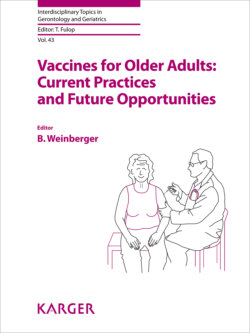Читать книгу Vaccines for Older Adults: Current Practices and Future Opportunities - Группа авторов - Страница 27
На сайте Литреса книга снята с продажи.
Energy Balance and Inflammation Regulation
ОглавлениеRecent progress targeting metabolic programming suggests potential treatment strategies to enhance immune responses in older adults. While several non-pharmaceutical dietary interventions have demonstrated improved longevity in animal models, including calorie restriction, fasting-mimicking diet, and ketogenic diet, few have investigated their impact on immune function during aging [94–97], and this area presents opportunities for future investigation. Many lifespan-extending interventions induce a negative energy balance in which energy expenditure exceeds energy consumption [98–101]. In this adaptive starvation response, the body switches from glucose to lipid breakdown to support energetic requirements via production of short-chain fatty acids such as ketone bodies. Accordingly, ketogenic diets comprised almost entirely of fat and protein actually promote fat break down and weight loss because of this adaptation to low-glucose availability. In addition to serving as an alternative fuel source, the most abundant ketone body, βhydroxybutyrate, potently inhibits NLRP3 inflammasome activation in macrophages, monocytes, and neutrophils from adult and older humans and mice [21, 102] and extends lifespan in Caenorhabditis elegans [103]. Notably, two studies recently reported increased lifespan and improved cognition in old mice fed a ketogenic diet [95, 96]. This highlights the importance of whole-body metabolism in regulating age-related inflammation and presents a critical window for future exploration.
